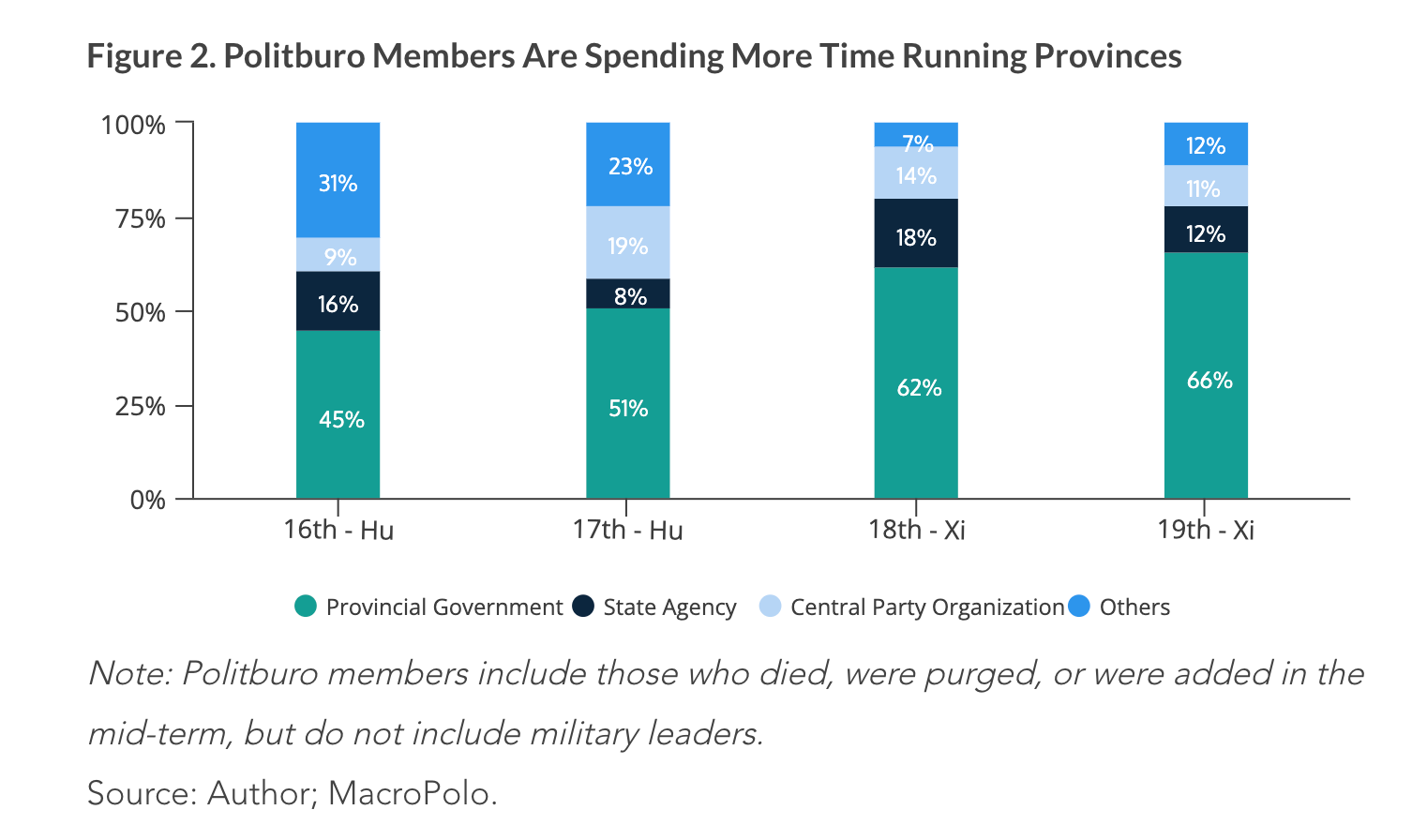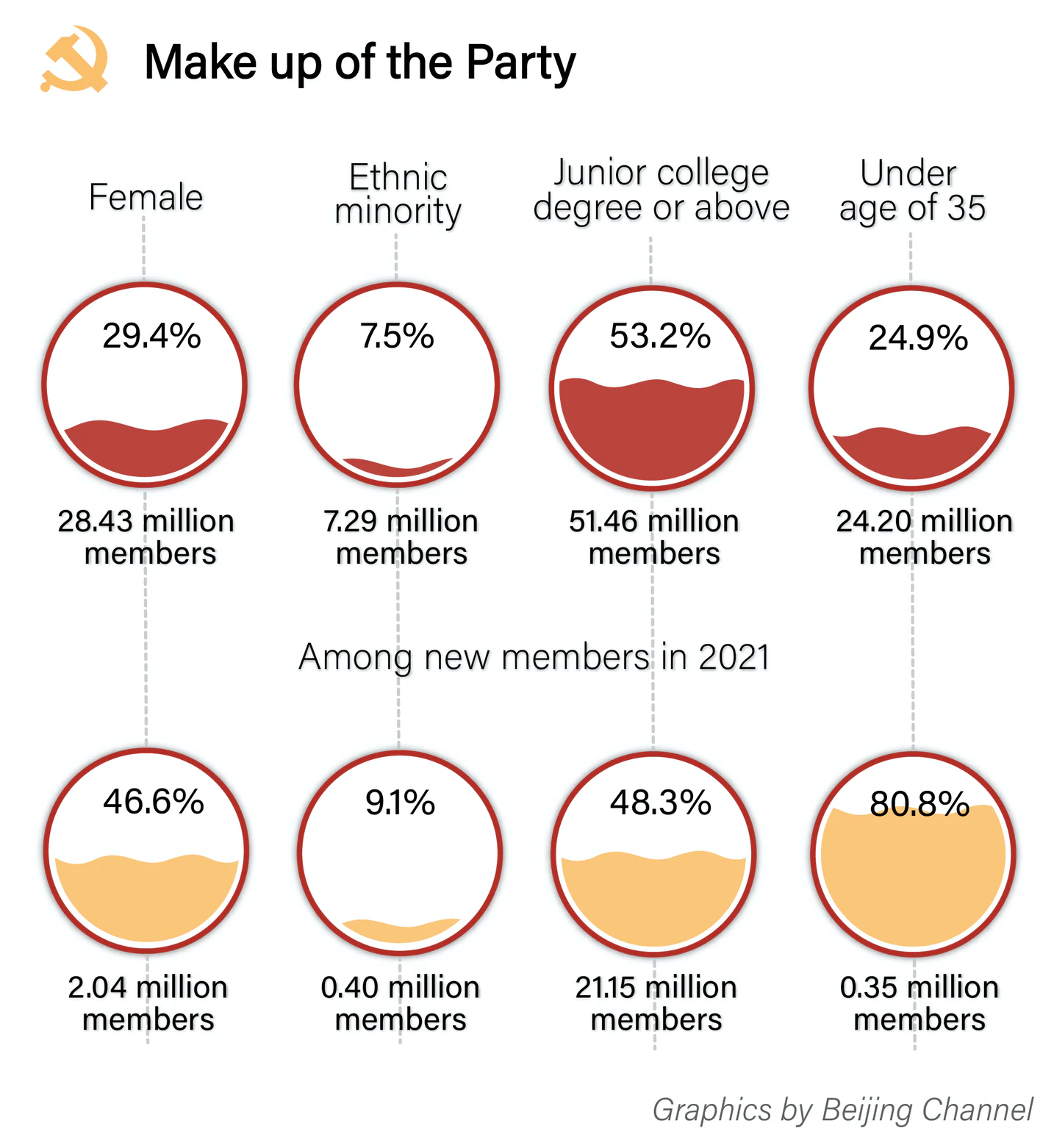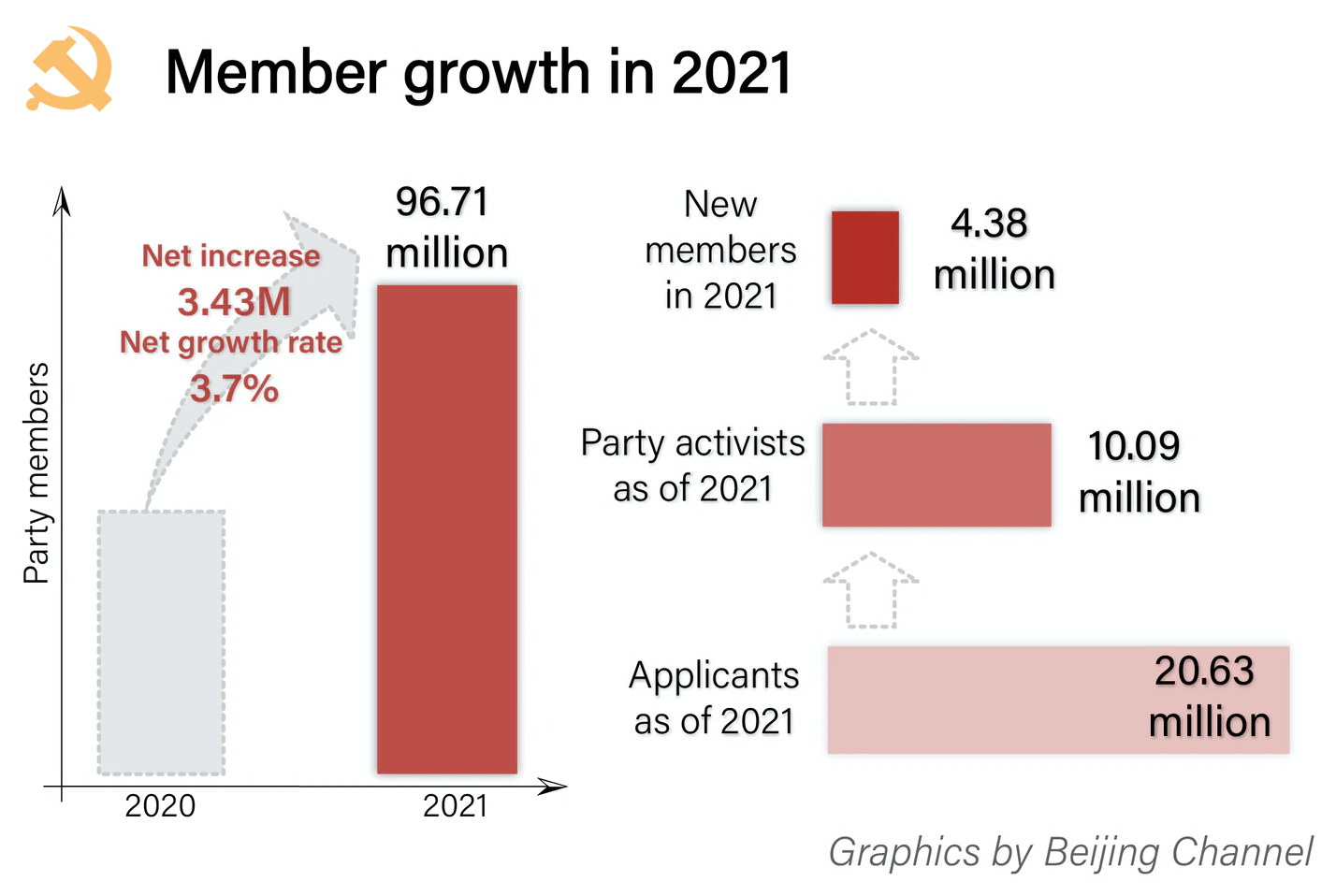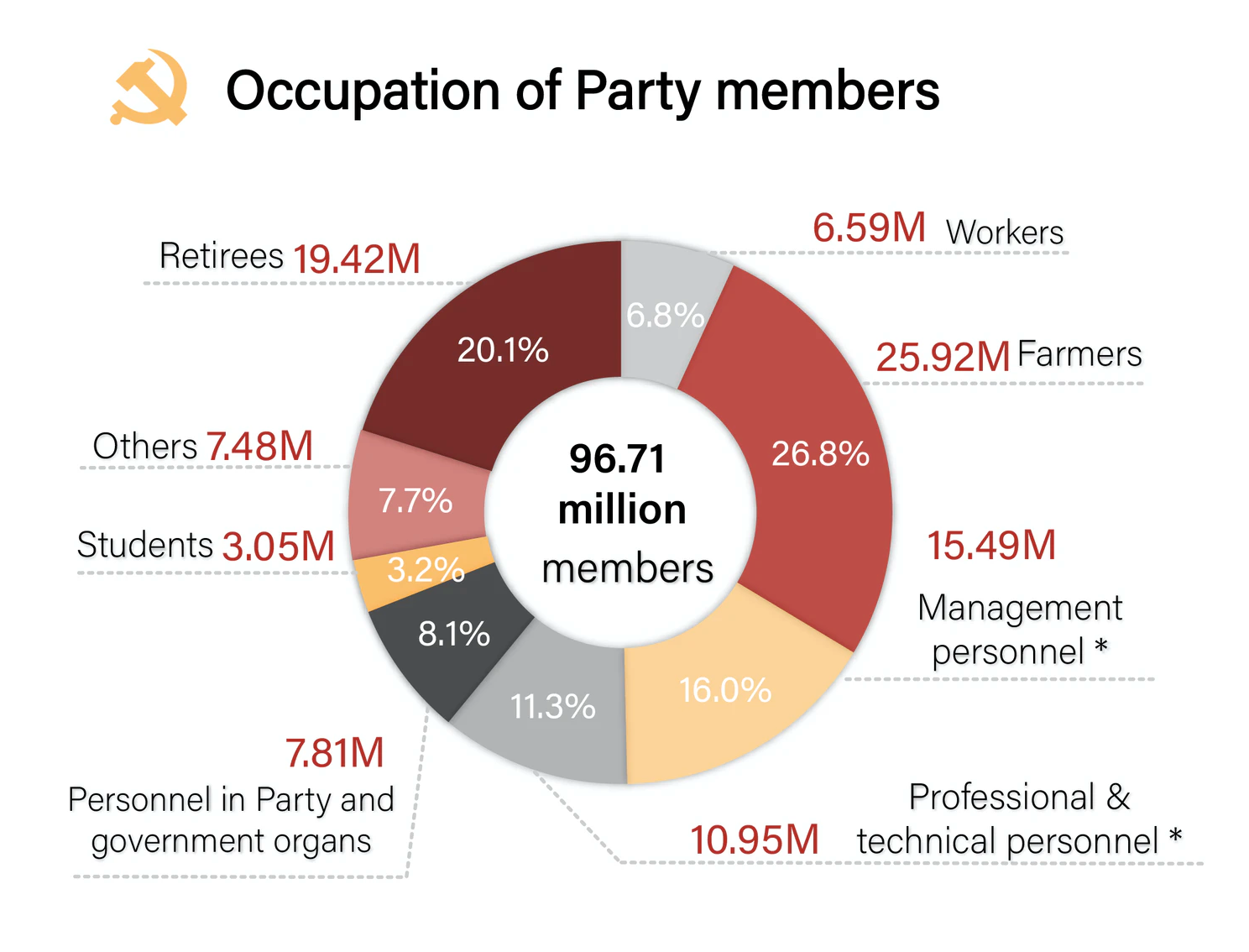China Analysis Digest #62
Date range: June 27 - July 5, 2022
Sources scanned: 110
Publications: 176
China Watching
Chine Neican
Reading the China Dream
- Lu Nanfeng and Wu Jing on the Industrial Party
- Zhou An'an and Wu Jing on "Like a Flowing River"
- Xu Kaiwen on "Hollow-Heart Disease"
Made in China Journal
China Heritage
- ‘You can’t rebel, you can’t start a revolution, and you can’t be independent.’ — How Ni Kuang saw the future of Hong Kong
- Hong Kong — Twenty-five years after the fall
China Media Project
China Brief
- No Choice but to Lie Flat: Youth Unemployment Surges in China
- Despite Threats, New Survey Data Reveals Few in Taiwan Pay Much Attention to China
- With Macron’s Return to Elysée, What’s Next for China-France Relations?
- 16 + 1: China’s Push Into Central and Eastern Europe Loses Momentum
- Divergent Economic and Ideological Visions Contend Ahead of 20th Party Congress
Opinion Pages
New York Times
Australian Financial Review
Sydney Morning Herald
- China gives ADF leaders ‘great clarity’ about military challenges
- ‘Disaster just around the corner’: Australia must not misread China’s deadly strategy
Blogs
China Story
Lawfare
The Interpreter
- Australians worry about China and muscle-flexing over Taiwan
- Contingency plans: South Korea and cross-Strait security
China-US Focus
- Europe Oscillates Between the U.S. and China
- Unwarranted Geopolitics Toward China and the Developing World is Undermining the Global Economy
- China’s Counterterrorism Experience
- Legal Status of the Taiwan Strait
- What’s Afoot in Chinese Peripheral Diplomacy?
- What Happened at the EU-China Summit
- Cambodia: China Smiles, U.S. Frets
- Departure from “One China” is More Dangerous Than Imagined
East Asia Forum
- Women’s rights taking centre stage in China
- US–China economic competition rests on intellectual property
- How Australia can find common purpose with China
China Collection
Pearls and Irritations
- The Hong Kong diaries: Patten revives colonialism, trying to attract interest
- Australia must find common purpose with China
- A word on war with China
The Strategist
- Xi’s anniversary visit marks near-total CCP control of Hong Kong
- By accident or design—or designed accident? China’s unsafe air intercepts
- How the Chinese foreign minister shut down Pacific media
- The CCP’s information campaign targeting rare earths and Australian company Lynas
Asialink Insight
News & Magazines
Monkey Cage
Sixth Tone
- For Rural Chinese Women, a Plot of Land Is Too Much to Ask
- Sanitizing a Chinese Shakespeare
- For China’s Same-Sex Couples, Even Guardianship Is Often Out of Reach
- Social Network: How Shanghai Stemmed the Surge, 100 Years Ago
- How China Can Better Protect Its Juvenile Offenders
- Southwest China’s Migrant Monks Face an Uncertain Future
Quartz
- In an EV world, Europe’s automakers are even more reliant on China
- China is softening its zero-covid approach—for now
- “Top Gun: Maverick” shows Hollywood can survive without China’s film market
China Digital Times
- China’s LGBTQ+ Groups Focus on Community-Building and Quiet Commemorations of Pride
- Netizen Voices: “All The Young People Have Fled” Dandong’s Interminable Lockdowns
- Behind Closed Doors, Xu Zhiyong and Ding Jiaxi Stand Trial for Subversion of State Power
- Li Wenliang’s Wailing Wall, June 2022: “Even when we’re getting rained on, we always try to hold up an umbrella for others”
- China Plays Mediator in the Horn of Africa, Leverages Local Media to Reinforce Narrative of Benevolence
The Conversation
- China, Russia and climate change: why Australia’s place at the NATO Summit was so important
- Is Australia in the firing line of a new Chinese campaign against the US?
- G7 and Nato summits lay bare deep and hostile divide between Russia and China and the west
- Hong Kong’s handover 25 years on: why human rights eroded so dramatically in the past two years
SupChina
- Beijing-born influencer sparks outrage on Chinese internet for supporting the overturning of Roe v. Wade
- To attract younger consumers, Moutai has to be more than just Moutai
- Animated art captures the boredom and absurdity of life under Taiwan’s COVID lockdown
- Beijing is trying to weaken sanctions on Russia
- Xi Jinping is in Hong Kong
- Exploring the Kingdom of Characters
- TikTok’s hard lesson in the drawbacks of ‘996 culture’
- COVID crushed China’s condom industry
- 5 streamable Chinese LGBTQ documentaries
- Drag queens and crossdressers: Where straight and queer meet on the Chinese internet
- How a lost civilization made me reconsider what it means to be Chinese
- Utah’s surprising success in China
- Internet hospitals: A great idea that’s not working
- When the Yellow River changes course
- China relaxes COVID curbs for international travelers
- Hong Kong resistance will live on
- At this international firm’s China office, English is power and refusing to speak it is a form of resistance
ThinkChina
- In Indonesia, Chinese financing for coal-fired power plants grows faster than that for renewables
- China tech companies draw up war plans for ASEAN battleground
- What a ‘resurrected’ NATO means for China and the world
- Shanghai hit by civil servant pay cuts
- How Japanese conglomerate SoftBank wrested back control of Arm China
- The Chinese government is wary of Tesla
- Is Hong Kong becoming just another Chinese city?
- ‘New Hong Kongers’ entering politics must act in the interests of all Hong Kongers
- To leave or not to leave: The cry of Hong Kong’s youth
- Have Hong Kong migrants in the UK never left Hong Kong?
- China at the centre of the world’s politics
- Iran seeks greater regional role through full membership of Shanghai Cooperation Organisation
- Greater centralisation of power expected after the 20th Party Congress
But both the government’s anti-monopoly law enforcement report and the new measures implemented to develop the platform economy did not reflect...Neither did the authority revise the now obsolete anti-monopoly law on the basis of such reflections...
Market behaviours that are not conducive to orderly development will inevitably emerge. But these unhealthy market behaviours are not the monopolistic practices of platform companies and it is thus necessary for the government to delink general unhealthy market behaviours from monopolistic practices when governing and supervising platform companies."
- US sets up strategic obstacles against 'autocratic' China
- China’s pragmatic party diplomacy in Southeast Asia
- Quit the dollar: Can Asia build its own digital currency and digital payment infrastructure?
The Diplomat
- Russia-Ukraine War: Implications for Asian Geoeconomics
- Can China Achieve Its BRICS Ambitions?
- Xi Defends Vision of Hong Kong on 25th Anniversary of Return
- China’s Up-and-Coming Sports Gear Makers: When Politics Meets Business
- With Kinmen Comments, Ko Wen-je Dives Into Cross-Strait Debate
- Xi Visits a Changed Hong Kong for Handover Anniversary
- Ambassador Xiao Qian’s Speech: A New Way Forward for Australia-China Relations?
- Assimilation: China’s Failed Strategy in Xinjiang
- Sri Lanka Overestimates its Importance to China
- China’s Baidu Races Waymo, GM to Develop Self-driving Cars
- China’s Directed Energy Weapons and Counterspace Applications
- Opinion Poll Reveals Australian Public’s Collapsing Trust in China
- China’s Vast Maritime Claims Are Becoming Reality
- Asia Can’t Save Russia’s Energy Sector
- China’s Non-Leadership in the Taliban’s Afghanistan
- The Biden Administration’s China Strategy
Foreign Policy
- NATO Steps Up to China Challenge
- China Is Sweeping Up Pacific Island Allies
- What Ukraine Can Tell Us About China
- What Does China Want in Ethiopia?
- China Owned My Mother’s Womb. Texas Owns Mine.
- We Are Now in a Global Cold War
Think Tanks
MacroPolo

Center for Strategic and International Studies
Center for Security and Emerging Technology
MERICS
- Italy pushes back against China’s technology transfer
- 25 years after the handover, Xi and Lee demonstrate Beijing’s iron grip on Hong Kong
- China’s nascent green hydrogen sector: How policy, research and business are forging a new industry
- China’s economic woes prompt return of bad habits
Institut Montaigne
- China’s Change Of Economic Model: Not So Fast!
- China Trends #13 - China Weighs Japan’s Blowback Against Its Own Actions
Council of Foreign Relations
- Outbound Investment Screening Would be a Mistake
- Recipient Countries Hold the Key to China’s BRI Success
Chatham House
Atlantic Council
- Twenty-first-century diplomacy: Strengthening US diplomacy for the challenges of today and tomorrow
- Entangling alliances? Europe, the United States, Asia, and the risk of a new 1914
Bilateral
Politico China Watcher
Politico China Direct
Beijing to Britain
- Hong Kong Handover special, China Strategy, Hikvision amendments
- NATO Strategic Concept on China
- G7 Leaders’ Communiqué on China
Newsletters
Eye on China
Pekingnology
- US & Russian ambassadors to face off in China's World Peace Forum
- China says U.S. cyberweapon found in computer systems
- In Africa, "The key to China’s success is, paradoxically, the lack of a defined model"
- Meet Galactic Energy, China's leading private space company
Tracking People's Daily
- HK Visit Hangover - Yang Jiechi in Zimbabwe - Wang Yi's 'Three Upholdings' for ASEAN - Origins of Chinese Civilisation Project - My Take on a Changing BRICS
- Xi's HK Visit - Wang Qishan in Philippines - Historical Confidence - More Financial Support for 'Major Projects' & Infrastructure - Foreign Investment Law Inspections - MND Warns Australia & Canada
- Xi on Tech Self-Reliance & Zero-Covid - Two Establishments Provide Guarantee for Self-Revolution - Xuānyán Article on Party's Mission - Yang Jiechi in Pakistan - CPC Membership at 96.71 million
- Xi & One Country, Two Systems - Li 'Very Concerned' about Employment - Li Qiang re-elected Shanghai Party Secretary - Ren Ping Commentary on Self-Revolution - Ren Lixuan on the 'Four Greats'
- Xi & Hong Kong - BRICS Commentaries - May Industrial Profits - Wang Yi Speaks to Taliban's Muttaqi - New 100-day Police Action
- Xi's a 'World-Class Leader' & 'Helmsman' - Praising Shanghai's Development - HK's 25th Anniversary Coverage - Wang Yang on Taiwan Policy
Beijing Channel



Misc
China Law Translate
- Provisions on Standard Contracts for the Export of Personal Information (Draft for Solicitation of Comments)
- Rules of Procedure of the Standing Committee of the National People’s Congress
- China’s persistent discontent with online content
- Anti-Monopoly Law (2022 Edition)
- Provisions on the Management of Internet User Account Information
China Trade Monitor
National People's Congress Observer
- NPC Calendar: July 2022
- NPCSC Amends Anti-Monopoly Law, Revises Sports Law & Adopts New Law to Protect Black Soil
Society & Culture
What's on Weibo
- The 25th Anniversary of Hong Kong’s Return to Chinese Sovereignty on Weibo
- Hunan Man Kills Wife by Running Over Her Twice with SUV
- Prohibited to Promote Top Students, Chinese Schools Are Praising their Excellent ‘Fruit’ Instead
- Chinese Twin Sisters Switched Identities to Illegally Travel Abroad over 30 Times
- Confusion over Official Media Report on China’s “Next Five Years” of Zero Covid Policy
- Who’s to Blame for Hangzhou Toddler’s Deadly Fall from 8th Floor Window?
RADII
Greater China
Hong Kong Free Press
Taiwan Insight
- Australia’s Perspective on the Applications from the UK, China, and Taiwan to Join the CPTPP
- Cashing in Taiwan’s Chips: Trade Deals and Divergent Interests from Washington and Tokyo
